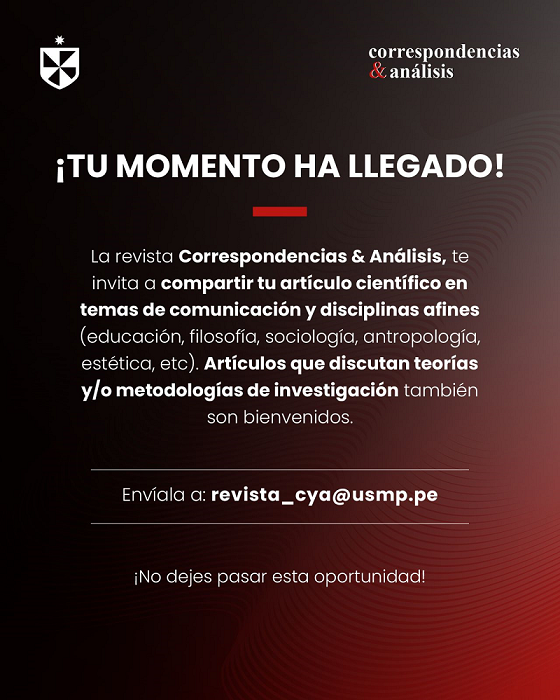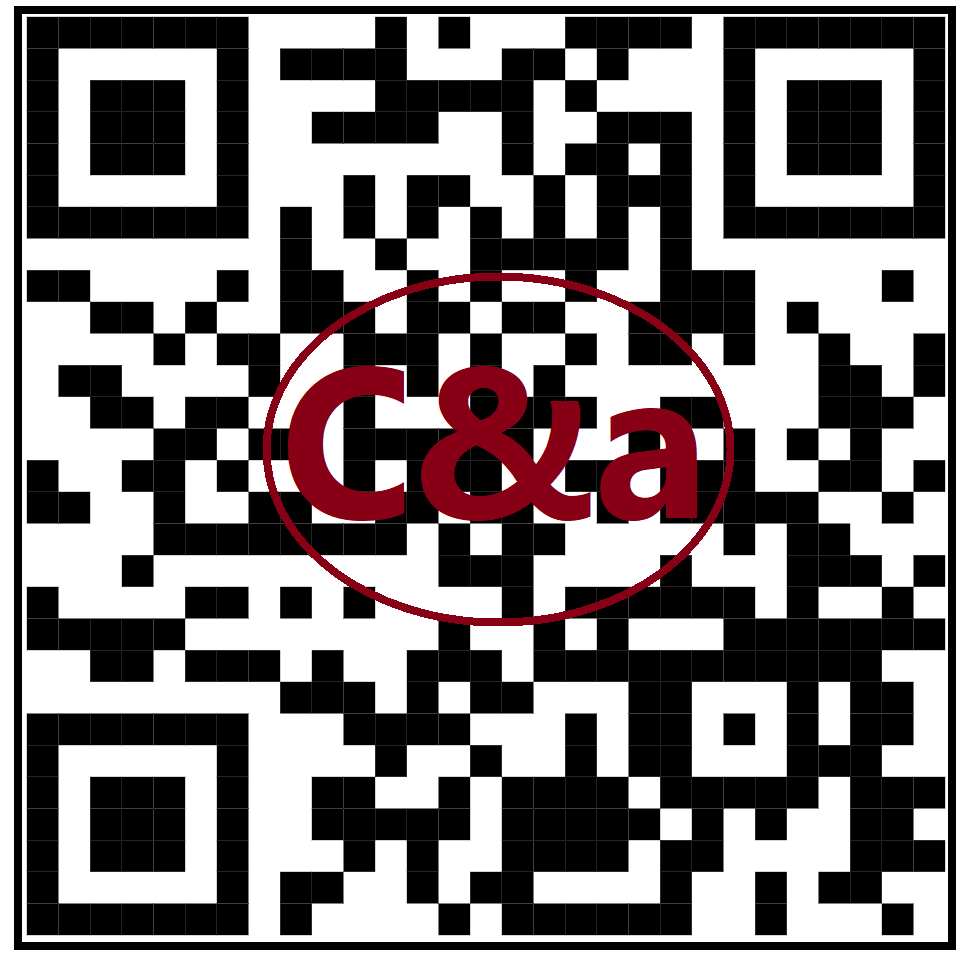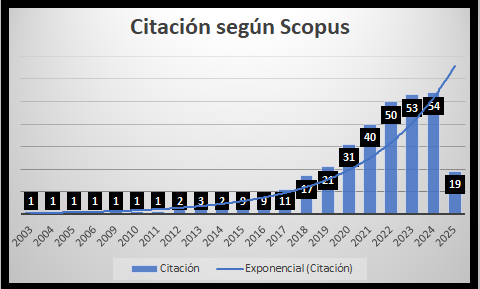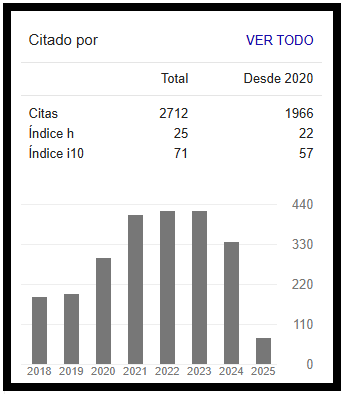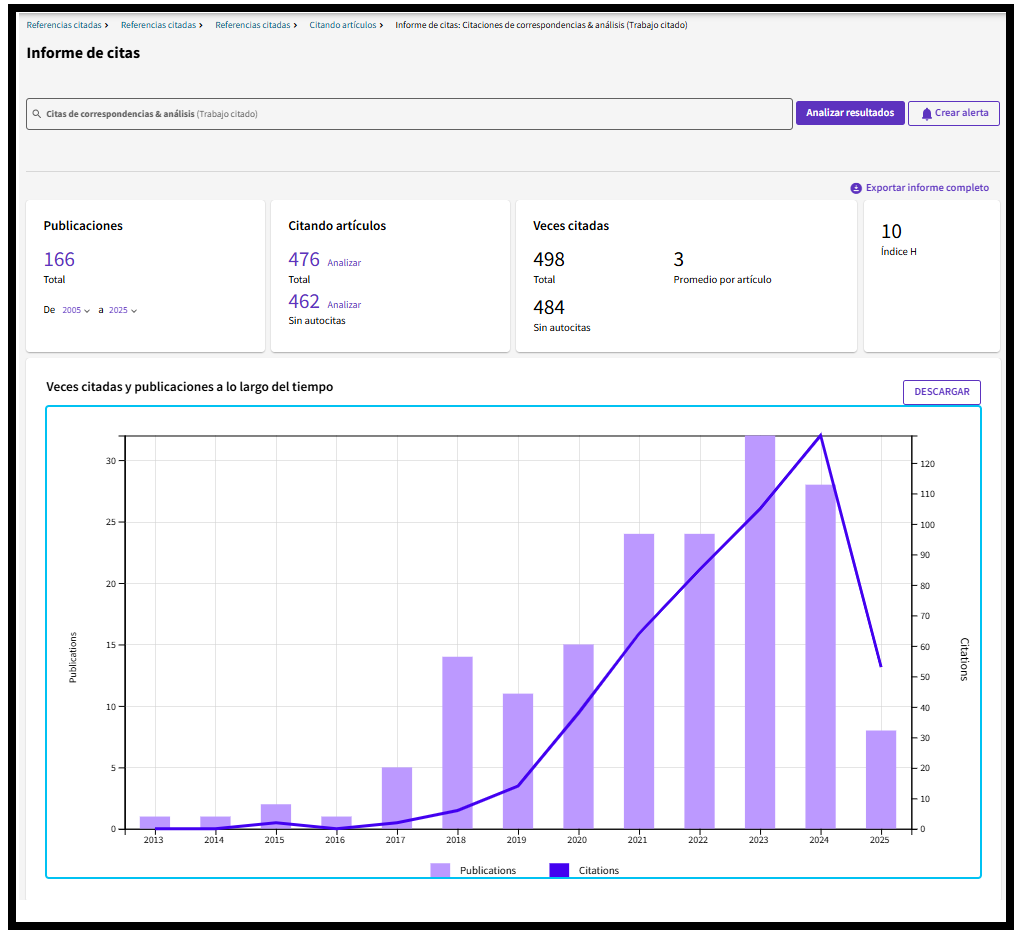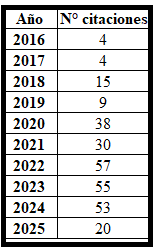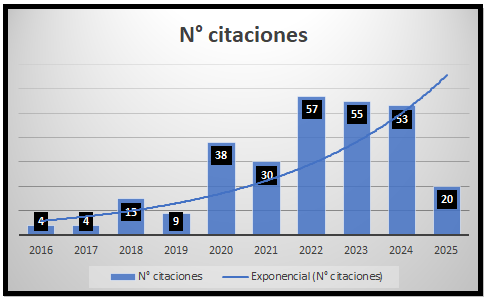Challenges in communicating climate change. Treatment in the Uruguayan press.
DOI:
https://doi.org/10.24265/cian.2024.n20.04Keywords:
communication, climate change, framing, journalism, UruguayAbstract
Climate change is a current problem that challenges public communication due to its complex scientific nature. These local socio-political, discursive, cultural and demographic interrelations interfere with public communication due to particular emotional conditions that intervene in the perception and interpretation of the problem. The framing of the news by journalists, when it addresses the specific conditions for communicating about climate change, can influence interest and understanding of the topic. To describe the treatment carried out by the press in Uruguay, exploratory research with content analysis was carried out on a sample of articles published in 2023 in which the applied frameworks were identified and analysed. The results show that the treatment of climate change is related to the journalistic model and practices of the media and not to their ideological orientation. The frameworks applied to present content on climate change in the articles do not respond to the difficulties that the phenomenon implies for public communication.
Metrics
Downloads
References
Ardèvol-Abreu, A., Gil de Zúñiga, H., & McCombs, M. E. (2020). Orígenes y desarrollo de la teoría de la agenda setting en Comunicación. Tendencias en España (2014-2019). Profesional de la Información, 29(4). https://doi.org/10.3145/epi.2020.jul.14
Avila, B., & González, E. J. (2014). Percepción social de los eventos extremos: una revisión teórica enfocada en la reducción del riesgo. Trayectorias, 16(39), 36-58. https://www.redalyc.org/articulo.oa?id=60731551003
Badullovich, N., Grant, W. J., & Colvin, R. M. (2020). Framing climate change for effective communication: a systematic map. Environmental Reserch Letters, 15(12), 123002. https://doi.org/10.1088/1748-9326/aba4c7
Castillo, A., & López, S. (2021). Public opinion about climate change in United States, partisan view and media coverage of the 2019 United Nations Climate Change Conference (COP 25) in Madrid. Sustainability, 13(7), 3926. https://doi.org/10.3390/su13073926
Chapman, D. A., Lickel, B., & Markowitz, E. M. (2017). Reassessing emotion in climate change communication. Nature Climate Change, 7, 850-852. https://doi.org/10.1038/s41558-0170021-9
Clayton, S. (2020). Climate anxiety: Psychological responses to climate change. Journal of Anxiety Disorders, 74. https://doi.org/10.1016/j.janxdis.2020.102263
Corral-Verdugo, V., Prato, C., & Torres-Soto, N. (2021). Testing a tridimensional model of sustainable behavior: self-care, caring for others, and caring for the planet. Environ Dev Sustain, 23, 12867-12882. https://link.springer.com/article/10.1007/s10668-020-01189-9
Díaz, B. (2009). Cambio climático, consenso científico y construcción mediática. Los paradigmas de la comunicación para la sostenibilidad. Revista Latina de Comunicación Social, (64), 99-119. https://orcid.org/0000-0001-6368-978X
Entman, R. M. (1993). Framing: towards clarification of a fractured paradigm. Journal of Communication, 43(4), 51-58. https://doi.org/10.1111/j.1460-2466.1993.tb01304.x
Etkin, D., & Ho, E. (2007). Climate change: perceptions and discourses of risk. Journal of Risk Research, 10(5), 623-641. https://doi.org/10.1080/13669870701281462
Fernández, R., Teso, G., & Piñuel, J. L. (2013). Propuestas de soluciones en la comunicación del cambio climático. Razón y Palabra, 84. https://www.redalyc.org/articulo.oa?id=199528904003
Knüpfer, C. B., & Entman, R. M. (2018). Framing conflicts in digital and transnational media environments. Media, War & Conflict, 11(4), 476-488. https://doi.org/10.1177/1750635218796381
Gómez, V., Besada, I., Gari, J., Garzón, C., Gómez, A., Jurburg, D., & Pérez, A. (2022). Comunicación y respuestas al cambio climático en Uruguay. Programa de las Naciones Unidas para el Desarrollo. https://www.undp.org/es/Publicacion_Comunicacion_y_Cambio_Climatico
González, E. (2012). La representación social del cambio climático. Revista Mexicana de Investigación Educativa, 17(55), 1035-1062. https://www.redalyc.org/articulo.oa?id=14024273003
González, E., & Meira-Cartea, P. (2009). Educación, comunicación y cambio climático. Resistencias para la acción social responsable. Trayectorias, 11(29), 6-38. https://www.redalyc.org/articulo.oa?id=60712749003
Gotopo, G. (2013). El periodismo ambiental en el trabajo de los periodistas de los diarios impresos. Retos ante el cambio climático. En R. Fernández & R. Mancinas, Medios de comunicación y cambio climático, (pp. 189-215). Fénix. http://hdl.handle.net/11441/36900
Instituto Uruguayo de Meteorología. (2024). Sequía meteorológica en Uruguay 2020-2023. https://www.inumet.gub.uy/sites/default/files/2024-01/Informe%20final_Sequ%C3%ADa%20Final_2020_2023_compressed.pdf
Lakoff, G. (2010). Why it matters how we frame the environment. Environmental Communication, 4, 70-81. https://doi.org/10.1080/175240390352749
Leiserowitz, A. (2006). Climate change risk perception and policy preferences: the role of affect, imagery, and values. Climate Change, 77, 45-72. https://doi.org/10.1007/s10584-006-9059-9
Meira-Cartea, P. A., González, E., & Gutiérrez-Pérez, J. (2018). Climate crisis and the demand for more empiric research in social sciences: emerging topics anda challenges in environmental psychology. PsyEcology, 9(3), 259-271. https://doi.org/10.1080/21711976.2018.1493775
Montevideo Portal. (10.09.2023). Carolina Cosse: «La pandemia también fue consecuencia del cambio climático». https://www.montevideo.com.uy/Noticias/Carolina-Cosse--Lapandemia-tambien-fue-consecuencia-del-cambio-climatico--uc865118
Moser, S. (2016). What more is there to say? Reflections on climate communication research and practice in the second decade of the 21st century. Wiley Interdisciplinary Reviews: Climate Change, 7(3), 345-369. https://doi.org/10.1002/wcc.403
Muguerza, M. J., Arce, N., & Cruz, M. C. (2023). Análisis de calidad y encuadres en la cobertura periodística sobre Machu Picchu como el primer destino turístico carbono neutral. Correspondencias & Análisis, (18), 155-175. https://doi.org/10.24265/cian.2023.n18.06
Nerlich, B., Koteyko, N., & Brown, B. (2010). Theory and language of climate change communication. Wiley Interdisciplinary Reviews. Climate Change, 1(1), 97-110. https://wires.onlinelibrary.wiley.com/doi/abs/10.1002/wcc.2
Ockwell, D., Whitmarsh, L., & O´Neill, S. (2009). Reorienting climate change communication for effective mitigation. Forcing people to be green or fostering grass-roots engagement? Science Communication, 30(3), 305-327. https://doi.org./10.1177/1075547008328969
Oltra, C., Solà, R., Sala, R., Prades, A., & Gamero, N. (2009). Cambio climático: percepciones y discursos públicos. Prisma social, (2), 1-23. https://www.redalyc.org/articulo.oa?id=353744575010
Porzecanski, R. (2021). Percepción social del cambio climático en Uruguay. Programa de las Naciones Unidades para el Desarrollo. https://www.undp.org/es/uruguay/publicaciones/estudio-sobre-percepcion-social-del-cambio-climatico
Ramos, R., & Callejo, J. (2022). La preocupación social por el cambio climático en España: una aproximación cualitativa. Política y Sociedad, 59(3), e74131. https://dx.doi.org/10.5209/poso.74131
Rinscheid, A., Pianta, S., & Weber, E. (2020). What shapes public support for climate change mitigation policies? The role of descriptive social norms and elite cues. Behavioural Public Policy, 5(4), 1-25. https://doi.org/10.1017/bpp.2020.43
Roeser, S. (2012). Risk communication, public engagement, and climate change: a role for emotions. Risk Analysis, 32(6), 1033-1040. https://doi.org/10.1111/j.1539-6924.2012.01812.x
Sádaba, T., Rodríguez, J., & Castro, M. B. (2012). Propuesta de sistematización de la teoría del framing para el estudio y praxis de la comunicación política. Observatorio (OBS*), 6(2), 109-126. https://dialnet.unirioja.es/servlet/articulo?codigo=5577051
Salas, R., Nguyen, V. M., Schott, S., Berseth, V., Hutchen, J., Taylor, J., & Klenk, N. A. (2021).Research agenda for affective dimensions in climate change risk perception and risk communication. Frontiers in Climate, 3. https://doi.org/10.3389/fclim.2021.751310
Schafer, M. S. (2012). Online communication on climate change and climate politics: a literature review. Wiley Interdisciplinary Reviews: Climate Change, 3(6), 527-543. https://doi.org/10.1002/wcc.191
Schmuck, D., Hirsch, M., Stevic, A., & Matthes, J. (2022). Politics-simply explained? how influencers affect youth´s perceived simplification of politics, political cynicism, and political interest. The International Journal of Press/Politics, 27(3), 738-762. https://doi.org/10.1177/19401612221088987
Stoknes, P. E. (2014). Rethinking climate communications and the «psychological climate paradox». Energy Research & Social Science, 1, 161-170. https://doi.org/10.1016/j.erss.2014.03.007
Tábara, J. D. (2001). La medida de la percepción social del medio ambiente. Una revisión de las aportaciones realizadas por la sociología. Revista Internacional de Sociología, 59(28), 127-171. https://doi.org/10.3989/ris.2001.i28.745
Task, J. (2019). Transformaciones de la narrativa del cambio climático global en Uruguay. Sociologías, 21(51), 102-123. https://doi.org/10.1590/15174522-0215104
Tourinho, I., & Herte de Moraes, C. (2013). Jornalismo e mudancas climáticas: reflexoes a partir da ótica do jornalismo ambiental. En R. Fernández-Reyes & R. Mancinas Chávez, Medios de comunicación y cambio climático (pp. 45-58). Fénix Editora. https://idus.us.es/handle/11441/36860
Tranter, B., & Booth, K. (2015). Scepticism in a changing climate: a cross-national study. Global Environmental Change, (33), 154-164. https://dx.doi.org/10.1016/j.gloenvcha.2015.05.003
Ulmke, N., Klackl, J., Hansen, J., Lempe, P., Finstewalder, V., Hagedorn, L., Rosenzweig, T., Ramstetter, L., Hüppauf, T., & Jonas, E. (2023). Political value-congruent climate change communication: an efficacy study from Germany and Austria. PsyEcology, 14(2), 183-243. https://doi.org/10.1080/21711976.2023.2204728
van der Linden, S. (2015). The social-psychological determinants of climate change risk perceptions: Towards a comprehensive model. Journal of Environmental Psychology, 41, 112-124. http://dx.doi.org/10.1016/j.jenvp.2014.11.012
Weber, E. U. (2016). What shapes perceptions of climate change? New research since 2010. Wiley Interdisciplinary Reviews: Climate Change, 7(1), 125-134. https://doi.org/10.1002/wcc.377
Weber, E. U. (2020). Seeing is believing: understanding & aiding human responses to global climate change. Daedalus, 149(4), 139-150. https://doi.org/10.1162/DAED_a_01823
Weingart, P., Engels, A., & Pansegrau, P. (2000). Risks of communication: discourses on climate change in science, politics, and the mass media. Public Understanding of Science, 9(3), 261-283. https://doi.org/10.1088/0963-6625/9/3/304
Zhou, M. (2015). Public environmental skepticism: A cross-national and multilevel analysis. International. Sociology, 30(1), 61-85. https://doi.org/10.1177/0268580914558285
Downloads
Published
Issue
Section
Categories
License
Copyright (c) 2024 Dra. Mónica Arzuaga-Williams, Mag. Graciela Rodríguez-Milhomens

This work is licensed under a Creative Commons Attribution 4.0 International License.
In case the manuscript is approved, the authors retain the copyright and assign to the journal the right to publish, edit, reproduce, distribute, display and communicate in the country of origin and abroad by means of print and electronic media in different databases.
In order for this procedure to be recorded, the author must fill out the following formats:
Format 1 - Author data Format.
Format 2 - Affidavit on originality and authorization for the publication of articles Format.
Format 3 - Open Science Compliance.

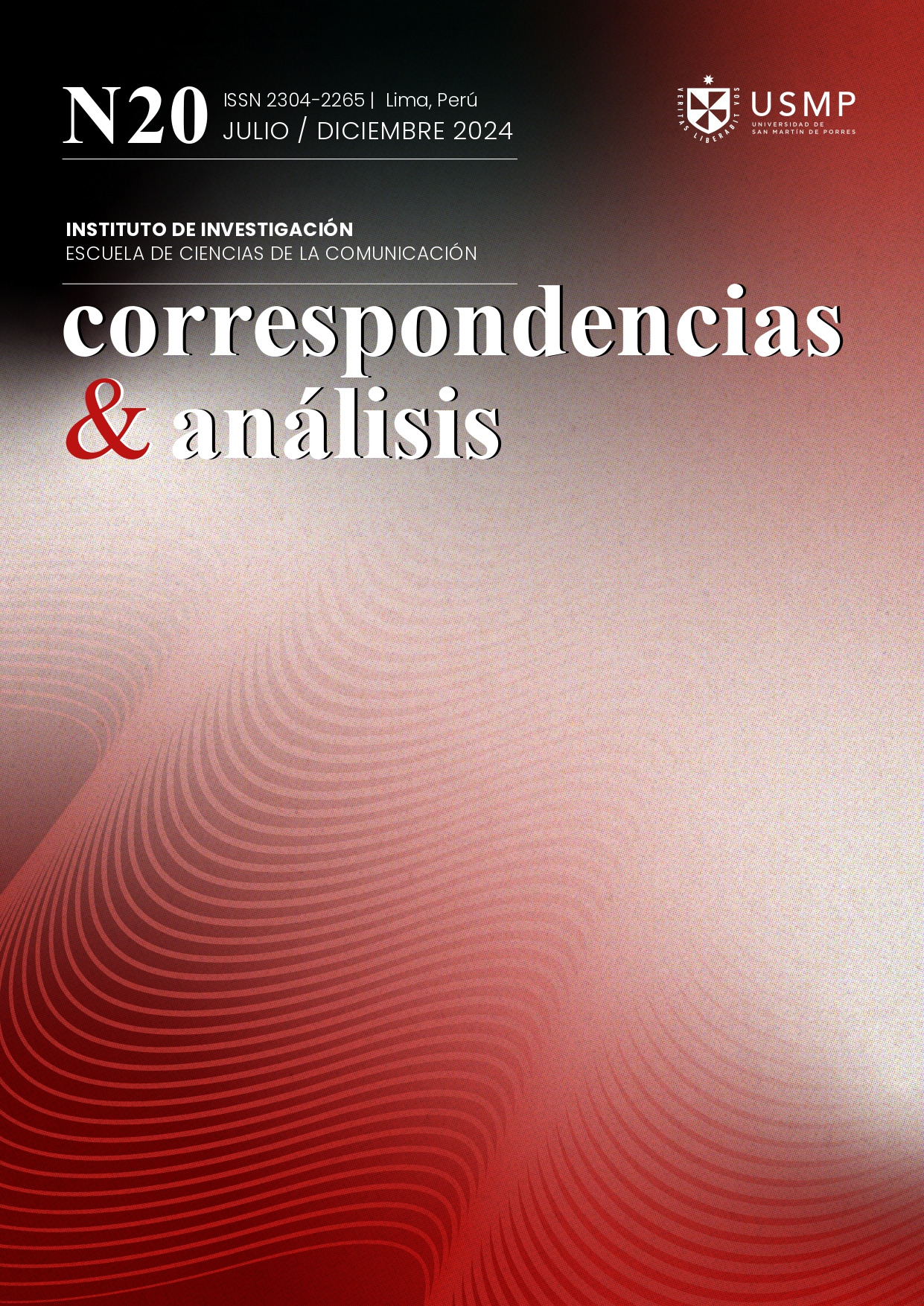




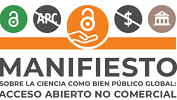

2.png)


